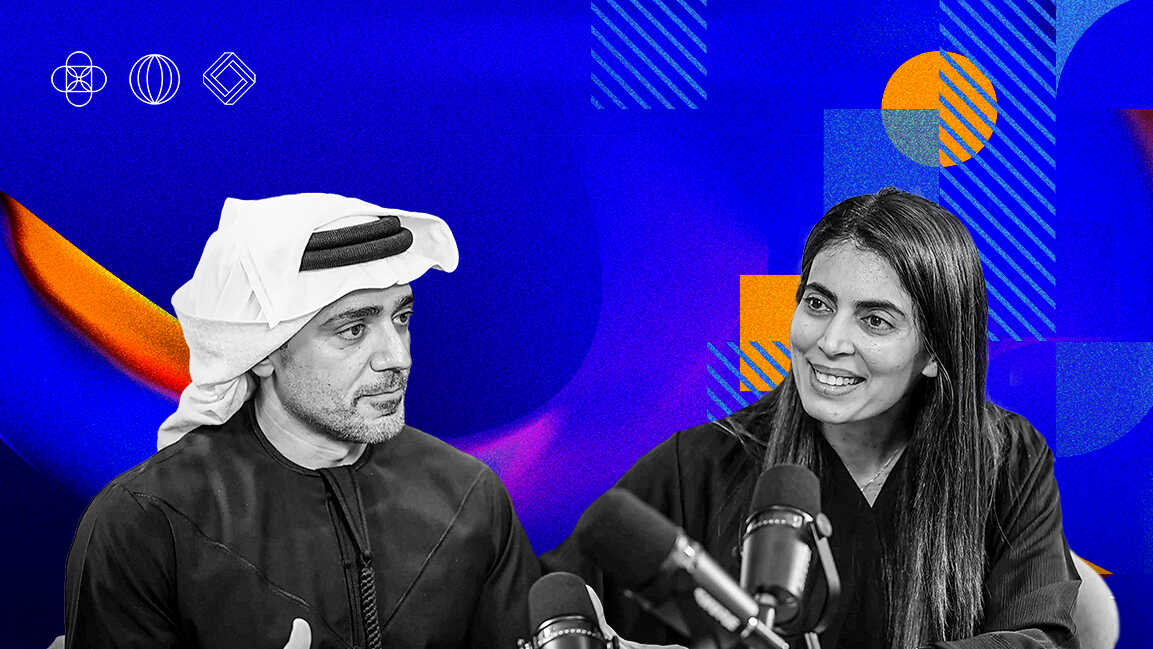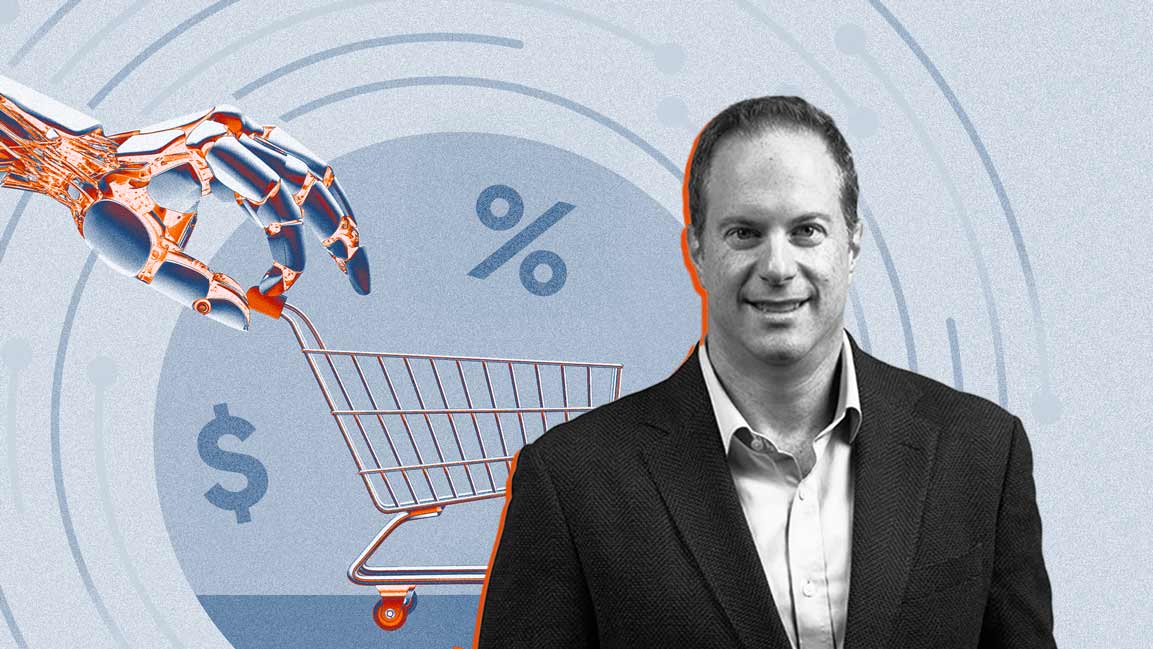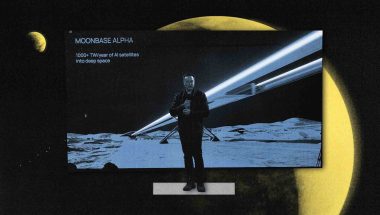- | Visa
Journeys Unpacked – Dubai Department of Economy and Tourism (DET) & Visa: How Dubai innovates to be a top travel destination
The sixth episode of the UAE series of Journeys Unpacked, powered by Visa, discusses how travel, tourism, payments, and retail industries join forces to make Dubai one of the world's best tourist destinations.

Continuing the UAE season of the Journeys Unpacked podcast series, powered by Visa and hosted by Dr. Saeeda Jaffar, Senior Vice President & Group Country Manager—GCC at Visa, the sixth episode featuring His Excellency Issam Kazim, CEO of the Dubai Corporation for Tourism and Commerce Marketing (DCTCM), part of the Dubai Department of Economy and Tourism (DET), explored how Dubai has become one of the world’s leading travel destinations and continues to enhance its position as a global hub for retail, experiences, hospitality and trade.
During the F1 weekend, 133,000 Visa cardholders made in-person transactions, with 62% of these visitors also spending in other emirates, particularly Dubai. According to Travel Pulse, this highlights the significant impact of major events on regional tourism and economy of the emirate.
Kazim emphasizes that Dubai’s success isn’t a stroke of luck, but rather by design, and the result of consistent, hard work and innovation across various sectors. Dubai’s recognition as the No.1 travel destination in Tripadvisor’s Travelers’ Choice Awards for three consecutive years from 2022 to 2024 highlights its unique ability to blend tourism, retail, and innovation. It’s clear that Dubai’s focus on continuously improving the tourism experience for both new and returning visitors is central to its long-term success in the competitive global travel landscape.
WATCH THE FULL VIDEO HERE
A CITYWIDE EFFORT
While Dubai’s allure continues to grow, much work goes on behind the scenes to make the city exceptional for tourists from across the globe. “When Dubai wins accolades, people usually say, ‘Oh, you guys did a great job.’ But really, the city is doing a phenomenal job,” says Kazim.
Looking back at the announcement of Dubai ranking as the world’s top destination, Kazim says it was a pleasant surprise, but hard work ensured the highest quality of service and the best possible experience for visitors. Winning for the third time was a proud moment, as London was the only other destination to achieve back-to-back wins.
“People don’t realize that the votes aren’t cumulative; every time, it’s a reset. We have to build from scratch. But honestly, going for a third wasn’t our focus. By design, we never focus on accolades—we focus on doing the job for the right reasons, and the accolades follow as a by-product,” Kazim says.
“Winning for the third time and being the first and only destination to achieve this was a proud moment for us. It was a first—and Dubai loves being the first. Hats off to the entire industry for their hard work and dedication,” he adds.
TOURISM STRATEGY
Dr. Saeeda then turned to what keeps tourists returning to the city multiple times.
Reflecting on 2013-2014, Kazim highlighted how the focus on understanding tourist preferences, origins and interests, following Dubai’s achievement of surpassing 10 million visitors in 2012, provided context for building better.
“To gain insights, we conducted surveys and market research that leveraged Dubai’s strengths as a global transit hub, primarily drawing visitors from the GCC, India, and select Asian and Western countries,” he says.
Recognizing the need for diversification, his team expanded the strategy from six markets to more than 80, utilizing digital marketing to optimize spending and personalize outreach. By embracing psychographic segmentation, they targeted traveler types, like adventure seekers, regardless of nationality.
Today, with one-third of the world’s population within a four-hour flight, Dubai continues to attract diverse visitors. “Our core KPIs focus on growing visitor numbers, increasing duration of stay, boosting visitor spending, and driving repeat visitations—culminating in a record 17.15 million tourists in 2023, with 25% returning within a year. These efforts have solidified Dubai’s position as a global tourism leader,” Kazim says.
Agreeing with Kazim, Dr. Jaffar outlined key elements that set Dubai apart. “The quality of service, safety, affordable luxury, and availability elements are unparalleled, but infrastructure is also key. Few places have aligned these factors as effectively as this region.”
Dubai’s tourism momentum continued as it welcomed 18.72 million international overnight visitors from January to December 2024, a 9% YoY increase that surpassed the previous record in 2023, marking back-to-back record-breaking years for the city.
PAYMENT INFRASTRUCTURE
Kazim emphasized the importance of payment infrastructure in ensuring safety and security for travelers crossing borders. He recalled a time when international travel involved cumbersome processes.
Today, travel is made easier by a robust banking system and comprehensive payment gateways. Kazim said, “In the digital age, payment solutions have become the norm. The infrastructure in place not only facilitates leisure travel but also effectively supports business travel.”
He highlighted the seamless connectivity provided by Dubai’s infrastructure, adding, “Everything is so well interconnected, which creates a frictionless experience for travelers, which is taken for granted until you visit places lacking such infrastructure, making you truly appreciate what you have.”
He pointed out that Dubai residents and visitors are highly skilled in navigating digital payment systems, reinforcing Dubai’s appeal as a favored destination for many travelers.
INFRASTRUCTURE TO SUPPORT
As Dubai attracted more people, many initially relocated for short periods before choosing to establish permanent offices and residences in the city.
“With the introduction of new visa options like Golden visas, Green visas, and Remote working visas, our goal is for Dubai to become the best city to visit, live and work in,” says Kazim.
The aim is to unite stakeholders across key sectors such as retail, hospitality, manufacturing, logistics, gastronomy, fintech, and AI. Entities like Emirates airline, DP World, and Emirates SkyCargo, leverage Dubai’s geographical advantage to connect the world, which is an added benefit.
“As we have outlined our strategy over the years, the Dubai Economic Agenda, D33, serves as a marker for our focus moving forward. Dubai has consistently operated with a private sector mentality, which explains why more people are relocating here and existing residents continue to invest in the city,” Kazim says.
“They see the vibrant energy and unwavering vision; Dubai is a city that never sleeps. In this environment, any business owner or individual is just a phone call away from key decision-makers across any sector.”
The culture of connectivity is intrinsic to everything Dubai does and will do. “D33 represents one vision, while our 2040 urban planning vision and the UAE Centennial 2071 signify our long-term goals and aspirations,” Kazim adds.
Journeys Unpacked is a series produced by Fast Company Middle East, in collaboration with digital payments leader Visa, to explore how technology, innovation, and digital payments are reshaping travel, hospitality, and digital commerce industries.








































